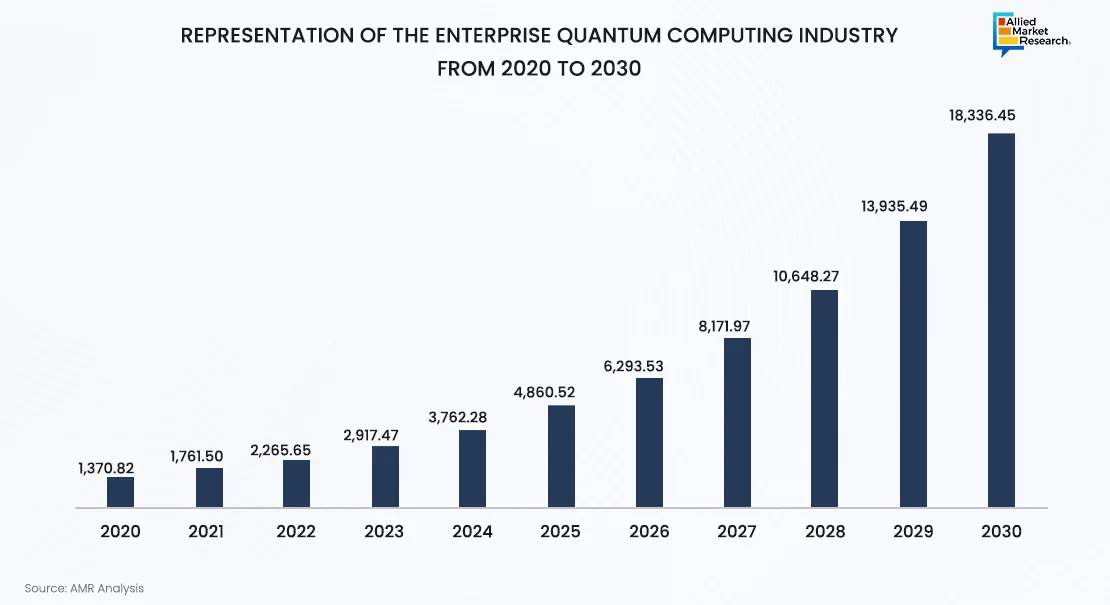
Onkar Sumant

Koyel Ghosh
Quantum Computing’s Contribution to the Future of the Mobility Industry

The mobility industry is rapidly evolving, marked by a surge in electric vehicle (EV) sales and advancements in technologies like batteries and autonomous cars. Electric vehicle (EV) sales are experiencing a substantial surge, with a projected sixfold increase in demand from 2021 to 2030. Investors have poured around $280 billion into automotive hardware and software solutions since 2010, drawn by advancements like advanced batteries and self-driving cars. Simultaneously, consumers, who previously favored private cars, are increasingly exploring eco-friendly alternatives like e-kick scooters and ridesharing services. These technological and consumer preference shifts are anticipated to culminate in a fully connected, intelligent, and environmentally sustainable mobility ecosystem.
Future vehicles are expected to be equipped with software enabling them to scan surroundings for parking spaces or identify hazards, potentially paving the way for full autonomy. Passengers can play games and watch videos in the car, and cars could suggest new routes if the original one is blocked. When traveling on complicated routes, people can easily switch between subways, shared rides, and other transportation choices with special Apps. These transformations, along with numerous other features related to connected cars and mobility applications, rely heavily on the swift and seamless exchange of extensive data between in-vehicle computers and those situated in various locations. Similarly, many mobility applications, including mapping services, depend on the sharing of information between technology companies and original equipment manufacturers (OEMs). Collaboration between these businesses has only recently commenced, and partners are still in the experimental phase, exploring optimal methods for data sharing.
Although existing computers suffice for many applications, they fall short in fully supporting the comprehensive changes required to establish a connected and intelligent mobility ecosystem. Quantum computing (QC) has emerged as a potential solution, promising faster and more effective outcomes. It operates on the principles of quantum mechanics, which govern the behaviors of atoms and subatomic particles.
Down the line, Quantum Computing (QC) is anticipated to address intricate problems related to small datasets, with the potential to extend its capabilities to handle exceedingly large datasets. Despite the projection by researchers that the widespread commercial adoption of quantum computing (QC) is expected to occur in approximately five to ten years, certain mobility companies are already conducting pilot applications and enhancing their capabilities in this domain. For example, BMW in 2019 announced their interest in exploration of QC and its various applications in the mobility sector. Similarly, in late 2023, Airbus and BMW entered a partnership like Quantum Mobility Quest for continuing the exploration in the same field. Opportunities in this field are imminent, as original equipment manufacturers (OEMs) employ QC to simulate how changes in the material composition of a vehicle component impact its performance. The advantages of QC are expected to prove particularly beneficial in vast countries with numerous roads and diverse route options. In the realm of autonomous driving, QC has the potential to enhance the performance of sensors and vehicle systems, enabling prompt decision-making when faced with obstacles on the road or assisting OEMs in devising more robust encryption algorithms to thwart hacking attempts on vehicles.
As mobility entities further expand their initiatives, QC stands to generate substantial value across various domains such as vehicle design, last-mile delivery, and long-distance shipping. Several analyses indicate that industries such as automotive, chemical, financial services, and life sciences are anticipated to experience the earliest economic impacts from QC.

The Advantages of QC
The algorithms employed in current high-performance classical computing (HPC) serve as the prevailing standard. They prove adequate for numerous computations, including tasks related to clinical trial evaluations, financial trend analyses, and weather pattern predictions. Quantum computing (QC), however, has the potential to execute the same computations much more swiftly and with lower power requirements. Additionally, QC holds potential in tackling complex problems across various industries that currently surpass the capabilities of HPC. Some of the industries which is experiencing a shift to QC over HPC through rigorous research include drug discovery & material science, financial modelling, and logistics & supply chain management.
Certain companies in the mobility sector have been hesitant to explore Quantum Computing (QC) applications, favoring High-Performance Computing (HPC) due to its lower cost and comparable problem-solving abilities, even though it operates at a slower pace. However, this perspective could lack foresight, considering that QC algorithms are continuously advancing, and associated costs are expected to decline over time. Across industries, QC is most likely to gain traction in two specific activities, as it provides the greatest advantages in terms of time and cost compared to HPC.
Simulation: Quantum computing (QC) has the potential to enhance the speed and precision of simulations, particularly those evaluating the internal energy structures of various molecules and their interactions. In the realm of mobility, simulations play a crucial role in optimizing battery development, facilitating the creation of heat-resistant materials, and contributing to the advancement of alternative aerospace fuels. For example, German car manufacturers like Daimler, and Volkswagen are presently investing in QC for simulation applications related to traffic flow optimization and battery material. Similarly, Renault has announced a project to develop simulating electric vehicles using QC. This project is expected to start is the last quarter of 2024.
Hybrid machine learning (ML) and artificial intelligence (AI): Using QC algorithms helps ML/AI models train faster and use less power, particularly in complex layers. This lets companies make faster decisions. This manifests in swift adjustments to flight schedules and routes driven by data from atmospheric models. Another notable benefit is the potential for QC to decrease the amount of training data necessary. For example, Daimler announced its intentions to develop advanced autonomous vehicle navigation systems using ML/AI and QC. The project is expected to start in late 2024.

Companies are expected to maximize their impact by embracing a hybrid operating model. This entails leveraging high-performance computing (HPC) for addressing particular issues and integrating quantum computing (QC) for cases where it offers the greatest benefits.
Take, for example, chemical interactions. Quantum mechanics state the interactions of atoms and subatomic particles, allowing quantum computers to model this inherently quantum process with significantly less memory and processing power compared to that required by high-performance computing.
Present and Future QC Applications in the Mobility Industry
Quantum computing presents an opportunity for Original Equipment Manufacturers (OEMs) in the manufacturing sector to elevate the optimization capabilities of digital twins. These digital twins serve as virtual representations of factories, aiding companies in optimizing various aspects such as robot paths within warehouses, job scheduling, equipment placement, quality control, and energy usage improvement. For instance, a prominent global automotive supplier Seimens has initiated a collaboration with a QC company IBM Corporation in Q1 of 2024 to develop digital twins that offer enhanced insights into equipment performance and production processes. This partnership holds the potential to reduce waste and energy consumption.
Some of the crucial applications of Quantum Computing (QC) are found in engineering research and development (R&D) and product design, with a particular focus on battery technology in electric vehicles (EVs). Currently, EV batteries predominantly feature lithium, often combined with other chemicals, and manufacturers are exploring alternative options. QC also has the potential to enhance algorithms for analysing molecular structures and interactions, enabling manufacturers to create batteries that are lighter, safer, and more cost-effective.
Original Equipment Manufacturers (OEMs) have already established partnerships with QC companies to expedite battery development. For example, Tesla in March 2024 announced its partnership with Rigetti Computing. This collaboration is aimed to use QC for the development of advanced batteries for Tesla’s electric vehicles. Some companies are developing QC algorithms utilizing density functional theory, allowing for rapid and precise analysis of electronic structures in various materials, surpassing the capabilities of High-Performance Computing (HPC). Beyond battery development, OEMs employ QC for detailed and swift insights into chemical properties and reactions during the creation of green fuels or heat-resistant materials.QC has the capacity to revolutionize various aspects of vehicle, aircraft, and satellite design, enabling OEMs to optimize product weight, sensor positioning, and resistance to physical stress. Additionally, QC enhances computational fluid dynamics testing, potentially reducing the costly build-test-improve cycles in metal-forming processes by providing insights more rapidly than HPC. Several OEMs are already collaborating with QC companies to address design challenges, utilizing quantum processors and tailored simulation algorithms to predict the impact of process modifications on the composition of vehicle parts and compliance with regulations.
In addition to accelerating development cycles and enhancing safety, virtual modelling through QC assists OEMs in producing lighter and more fuel-efficient vehicles.
At Allied Market Research, our focus is on providing vendors with vital insights into quantum computing practices within the mobility sector. By embracing this technology, the industry is revolutionizing vehicle design, optimizing last-mile delivery, and improving long-distance shipping applications. This advancement directly enhances customer satisfaction, driving overall company growth. For more details on QC practices, contact our experts today!

